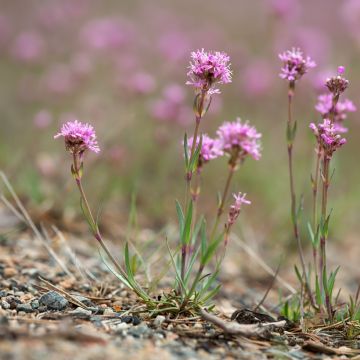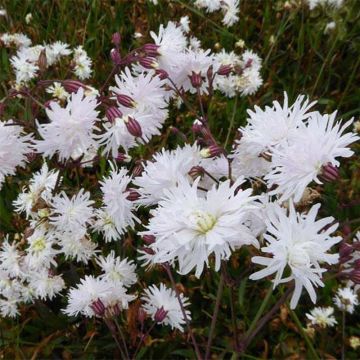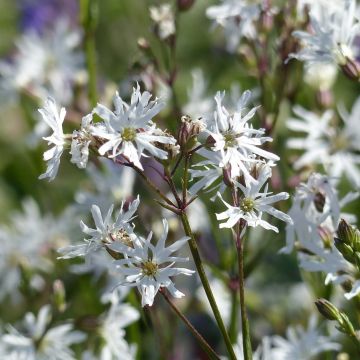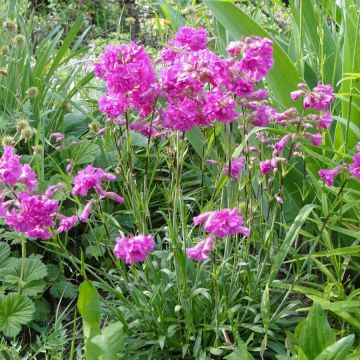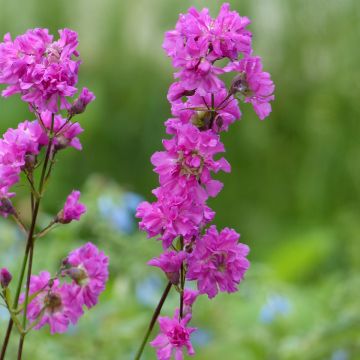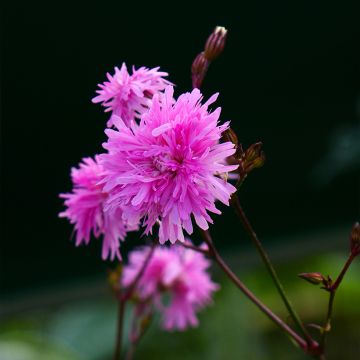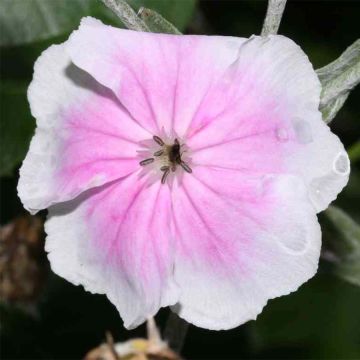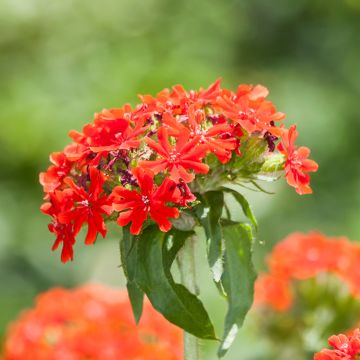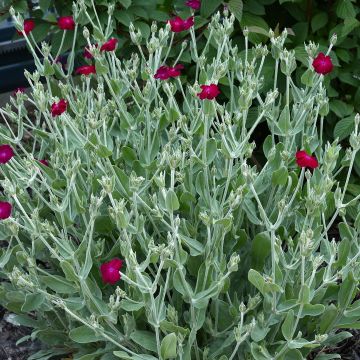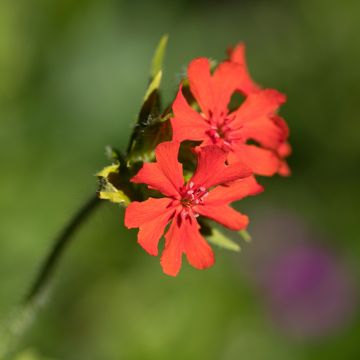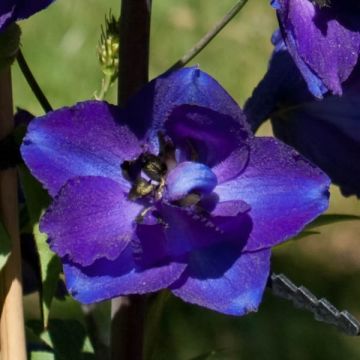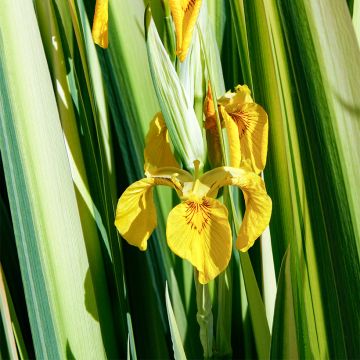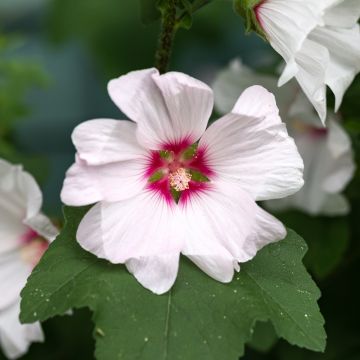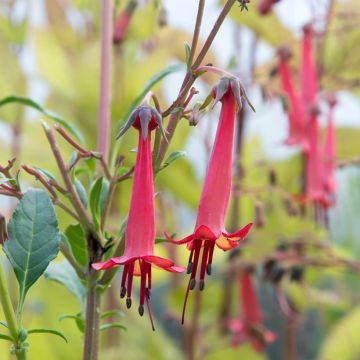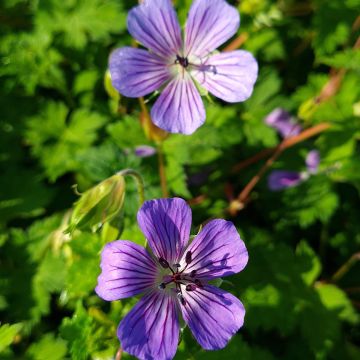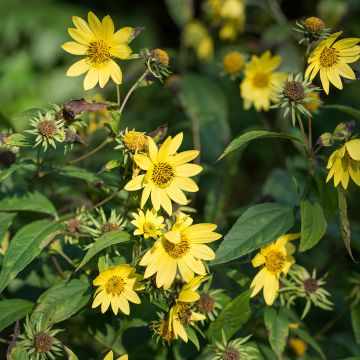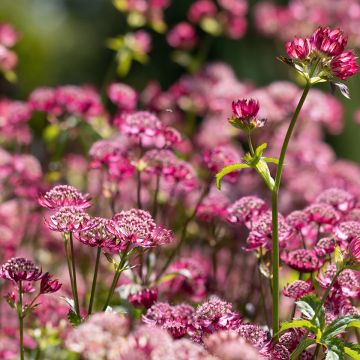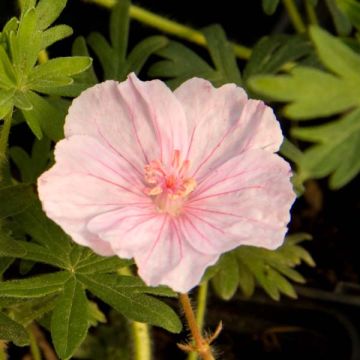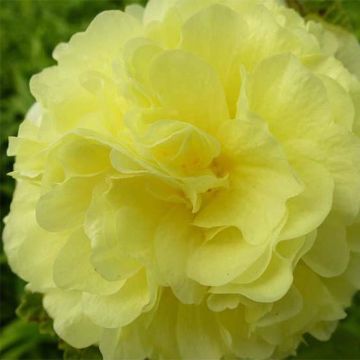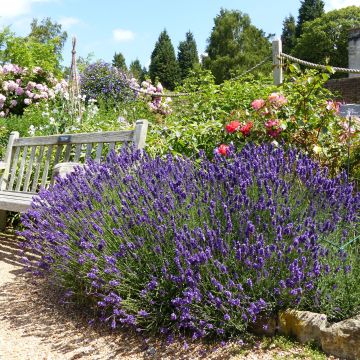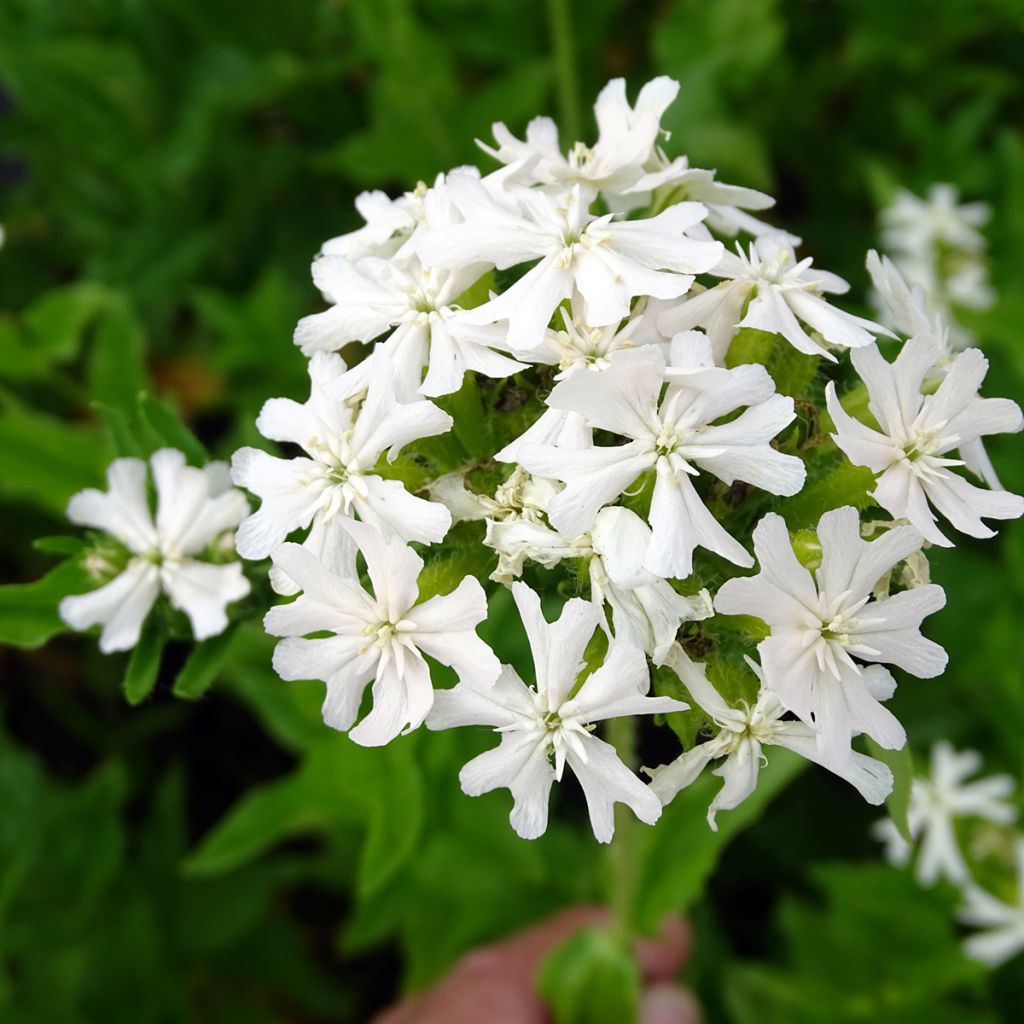

Lychnis chalcedonica Alba
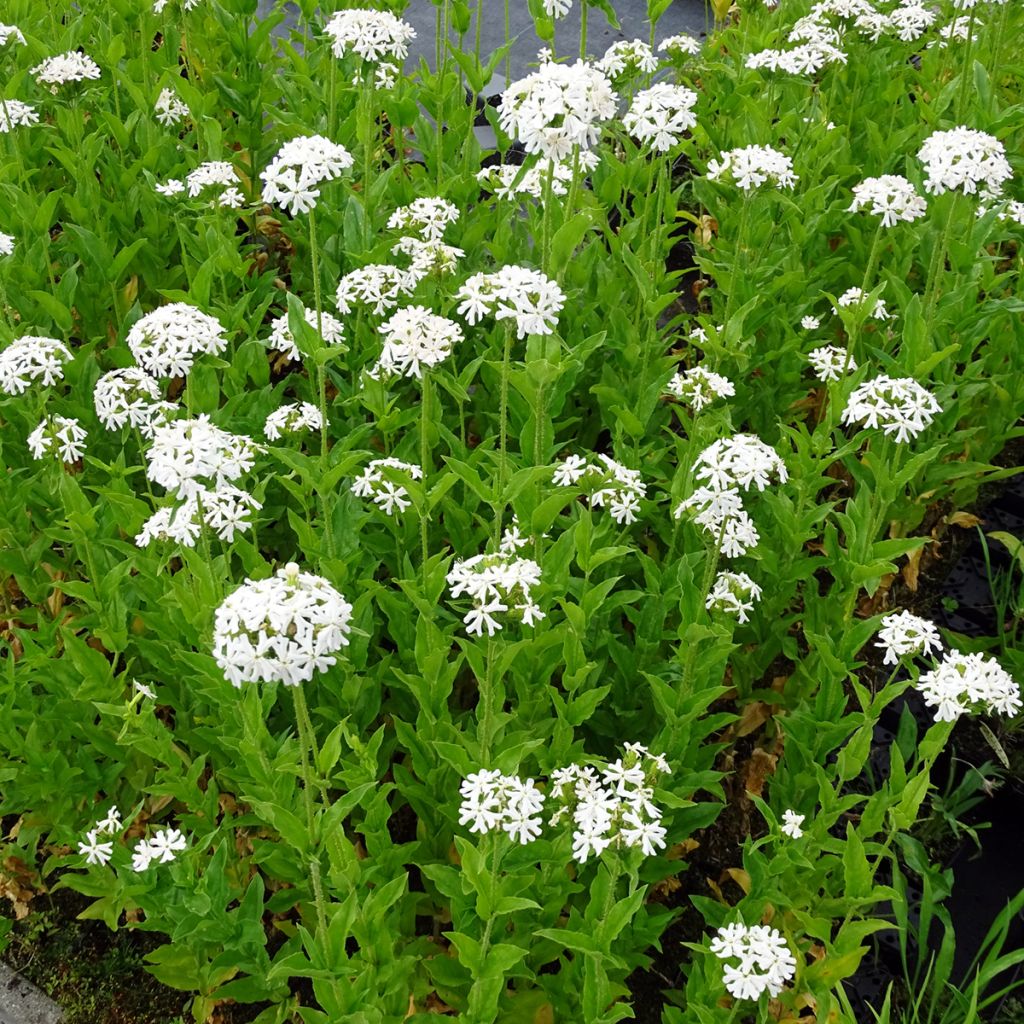

Lychnis chalcedonica Alba
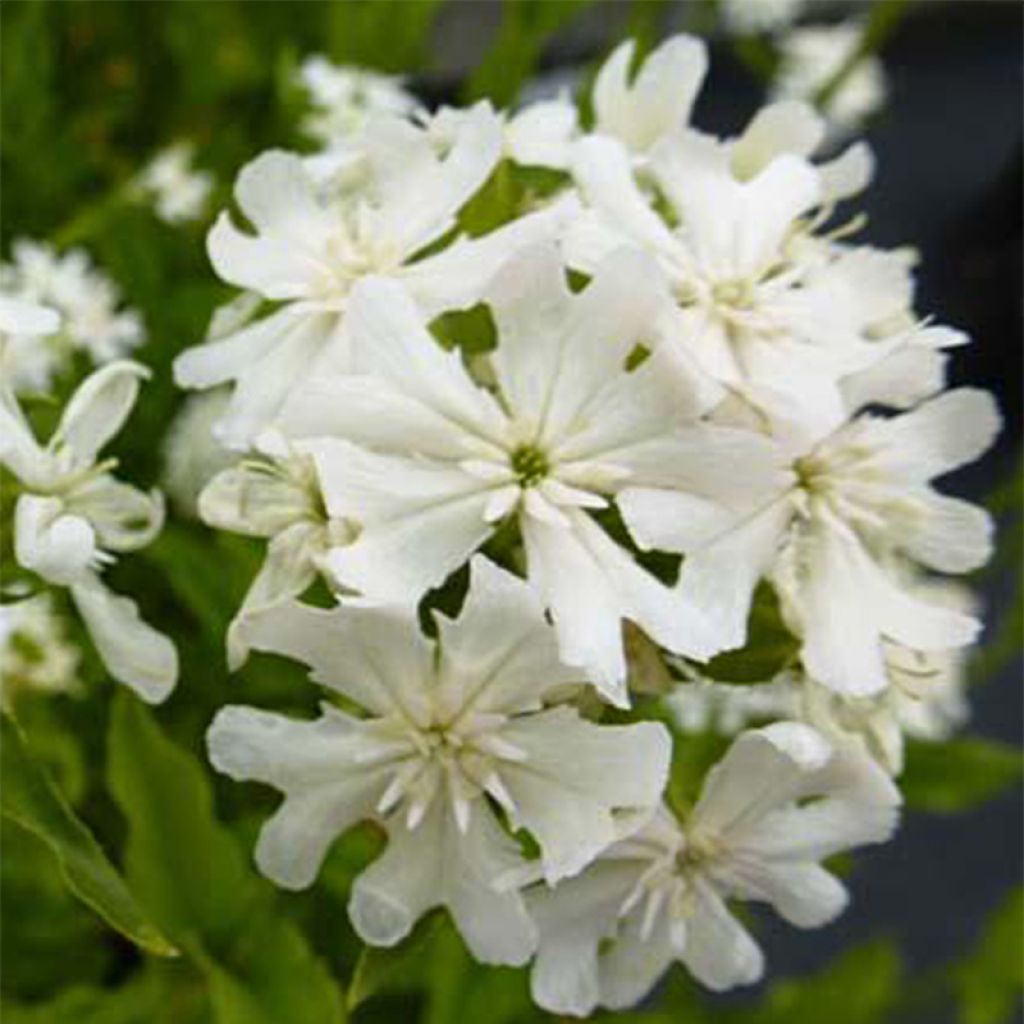

Lychnis chalcedonica Alba
Lychnis chalcedonica Alba
Lychnis chalcedonica Alba
Maltese-cross, Scarlet Lychnis
This item cannot be shipped to the selected country
Delivery charge from €5.90
More information
Schedule delivery date,
and select date in basket
This plant carries a 12 months recovery warranty
More information
We guarantee the quality of our plants for a full growing cycle, and will replace at our expense any plant that fails to recover under normal climatic and planting conditions.
From €5.90 for pickup delivery and €6.90 for home delivery
Express home delivery from €8.90.

Does this plant fit my garden?
Set up your Plantfit profile →
Description
The Lychnis chalcedonica Alba, also known as the Jerusalem Cross or Lychnide, is a beautiful white form of this perennial herbaceous plant with summer flowering. The umbels are composed of multiple small flowers of pure white that bloom from June to August, and again in September if you take care to remove the faded flowers. A highly appreciated upright plant in the background of flower beds, the 'Maltese Cross' planted en masse will attract all eyes in borders and bouquets.
The Lychnis chalcedonica is a short-lived perennial plant from the family Caryophyllaceae, native to Eastern Europe, Central and Eastern Russia (Kazakhstan, Mongolia), and northwest China. This species is the only one in its genus that appreciates constantly moist soils and can withstand very cold winters. 'Alba' is a selected form for its white flowers. By observing its small flowers gathered in umbels, you will notice five petals, the upper part of which is slightly divided in two, which is why it is called the Maltese Cross or Jerusalem Cross. The inflorescence is composed of 15 to 30 flowers, each 2 cm (1in) in diameter. The stem of this Lychnis is erect, covered with dense hairs, and bears an umbel at its tip. Its lanceolate and opposite leaves, rather thick, are light and vivid green in color. Its habit, not very bushy, will encourage you to plant it in groups to enhance the overall effect. Its tall size, reaching up to 90 cm (35in) in height, makes it suitable for the middle or back of flower beds. It prefers rather moist soils and will thrive in full sun in cold regions. In rich soil, it may self-seed.
The Lychnis chalcedonica Alba is one of the summer flowers that best complements the brilliant color of the wild species, an intense red. Planted together, these two plants will form an elegant and perfectly complementary combination. Easy to mix with other flowers, this white Lychnis will naturally fit into a multicolored ensemble composed of wildflowers: daisies, centaureas, poppies, and grasses will be charming in its company. An excellent perennial plant used in gardens for a long time, the Jerusalem Cross, a bit outdated despite all its qualities, is inseparable from cottage gardens.
Report an error about the product description
Lychnis chalcedonica Alba in pictures
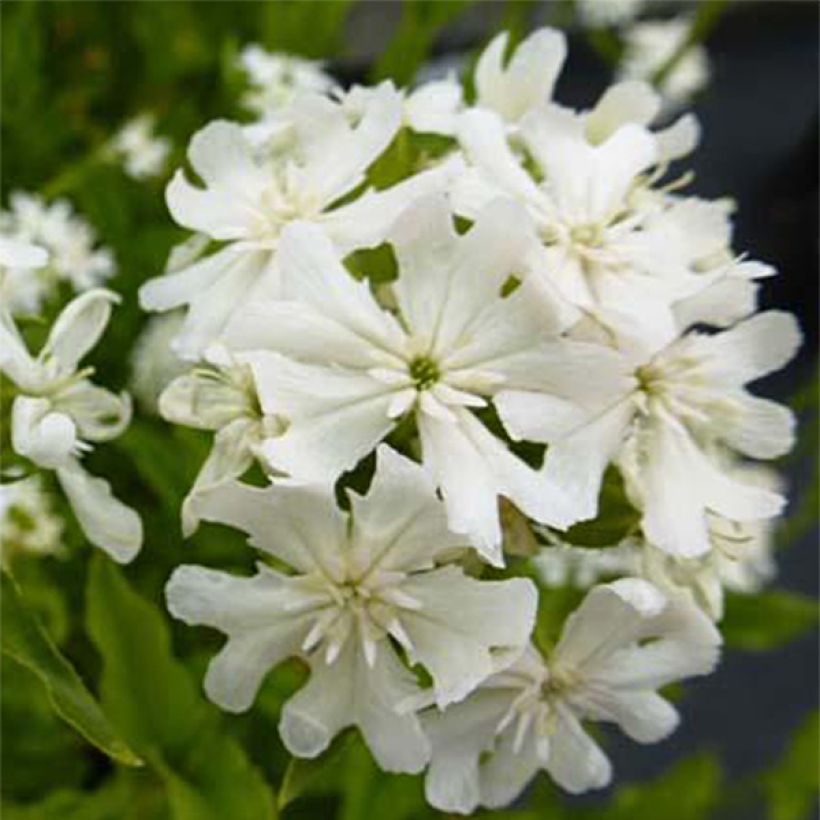

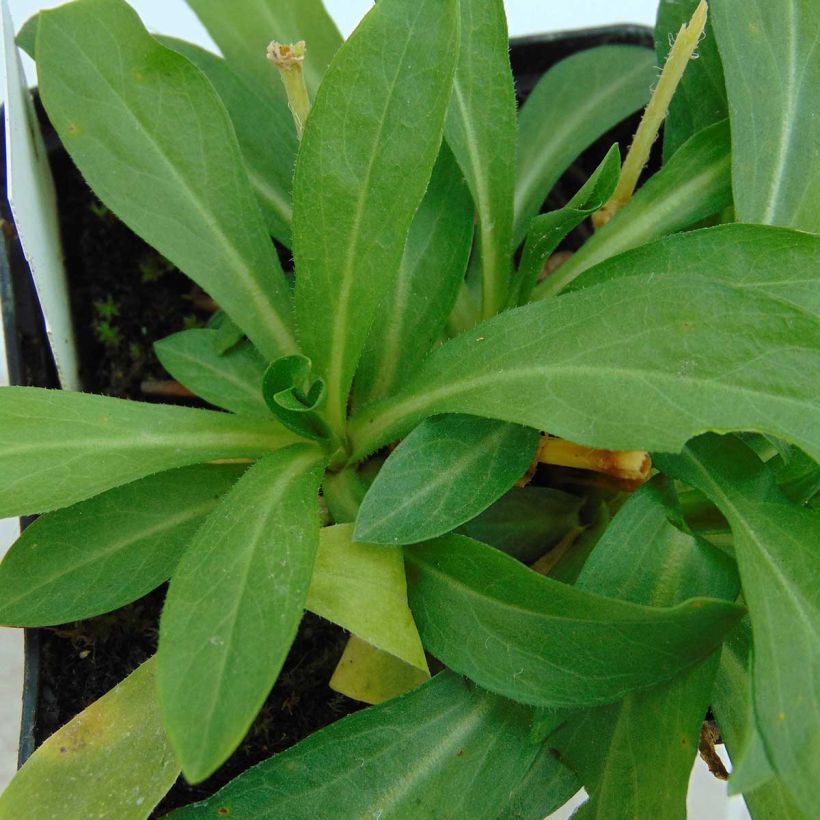

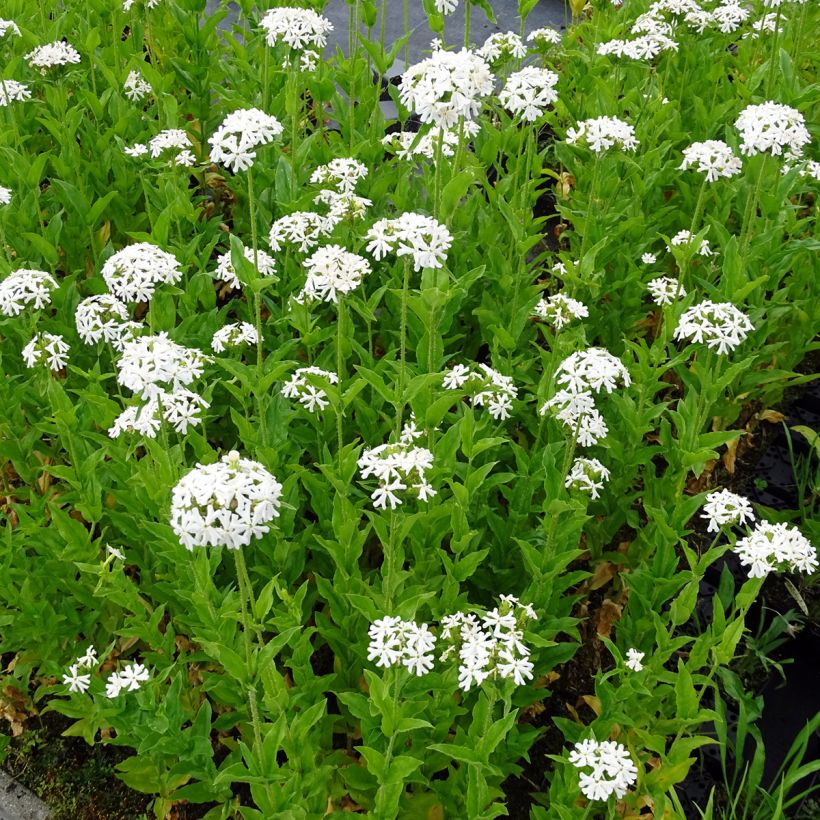

Flowering
Foliage
Plant habit
Botanical data
Lychnis
chalcedonica
Alba
Caryophyllaceae
Maltese-cross, Scarlet Lychnis
Eastern Europe
Other Lychnis
Planting and care
Unlike other species of Lychnis, Lychnis chalcedonica prefers soils that remain moist and does not tolerate drought well. Plant it in autumn or spring in groups of 5 plants spaced 15 to 20 cm (6 to 8in) apart for a spectacular effect, in full sun in the northern regions of France, and in partial shade elsewhere. The soil should be fertile; if necessary, enrich the soil with compost and powdered horn that you place at the bottom of the planting hole to promote the establishment and growth of this demanding plant. During the season, apply a little fertilizer at its base to stimulate flowering. In summer, monitor watering so that the soil never completely dries out, and apply mulch if necessary.
It may be useful to stake this lychnis from the end of spring, as the stem tends to bend under the weight of the umbels. Remove faded flowers as they appear to promote the formation of new buds and extend the flowering period by a few weeks. Cut back the foliage in October to 20 cm (8in) above the ground to encourage the plant to produce fresh new foliage.
Planting period
Intended location
Care
-
, onOrder confirmed
Reply from on Promesse de fleurs
Summer flowering perennials
Haven't found what you were looking for?
Hardiness is the lowest winter temperature a plant can endure without suffering serious damage or even dying. However, hardiness is affected by location (a sheltered area, such as a patio), protection (winter cover) and soil type (hardiness is improved by well-drained soil).

Photo Sharing Terms & Conditions
In order to encourage gardeners to interact and share their experiences, Promesse de fleurs offers various media enabling content to be uploaded onto its Site - in particular via the ‘Photo sharing’ module.
The User agrees to refrain from:
- Posting any content that is illegal, prejudicial, insulting, racist, inciteful to hatred, revisionist, contrary to public decency, that infringes on privacy or on the privacy rights of third parties, in particular the publicity rights of persons and goods, intellectual property rights, or the right to privacy.
- Submitting content on behalf of a third party;
- Impersonate the identity of a third party and/or publish any personal information about a third party;
In general, the User undertakes to refrain from any unethical behaviour.
All Content (in particular text, comments, files, images, photos, videos, creative works, etc.), which may be subject to property or intellectual property rights, image or other private rights, shall remain the property of the User, subject to the limited rights granted by the terms of the licence granted by Promesse de fleurs as stated below. Users are at liberty to publish or not to publish such Content on the Site, notably via the ‘Photo Sharing’ facility, and accept that this Content shall be made public and freely accessible, notably on the Internet.
Users further acknowledge, undertake to have ,and guarantee that they hold all necessary rights and permissions to publish such material on the Site, in particular with regard to the legislation in force pertaining to any privacy, property, intellectual property, image, or contractual rights, or rights of any other nature. By publishing such Content on the Site, Users acknowledge accepting full liability as publishers of the Content within the meaning of the law, and grant Promesse de fleurs, free of charge, an inclusive, worldwide licence for the said Content for the entire duration of its publication, including all reproduction, representation, up/downloading, displaying, performing, transmission, and storage rights.
Users also grant permission for their name to be linked to the Content and accept that this link may not always be made available.
By engaging in posting material, Users consent to their Content becoming automatically accessible on the Internet, in particular on other sites and/or blogs and/or web pages of the Promesse de fleurs site, including in particular social pages and the Promesse de fleurs catalogue.
Users may secure the removal of entrusted content free of charge by issuing a simple request via our contact form.
The flowering period indicated on our website applies to countries and regions located in USDA zone 8 (France, the United Kingdom, Ireland, the Netherlands, etc.)
It will vary according to where you live:
- In zones 9 to 10 (Italy, Spain, Greece, etc.), flowering will occur about 2 to 4 weeks earlier.
- In zones 6 to 7 (Germany, Poland, Slovenia, and lower mountainous regions), flowering will be delayed by 2 to 3 weeks.
- In zone 5 (Central Europe, Scandinavia), blooming will be delayed by 3 to 5 weeks.
In temperate climates, pruning of spring-flowering shrubs (forsythia, spireas, etc.) should be done just after flowering.
Pruning of summer-flowering shrubs (Indian Lilac, Perovskia, etc.) can be done in winter or spring.
In cold regions as well as with frost-sensitive plants, avoid pruning too early when severe frosts may still occur.
The planting period indicated on our website applies to countries and regions located in USDA zone 8 (France, United Kingdom, Ireland, Netherlands).
It will vary according to where you live:
- In Mediterranean zones (Marseille, Madrid, Milan, etc.), autumn and winter are the best planting periods.
- In continental zones (Strasbourg, Munich, Vienna, etc.), delay planting by 2 to 3 weeks in spring and bring it forward by 2 to 4 weeks in autumn.
- In mountainous regions (the Alps, Pyrenees, Carpathians, etc.), it is best to plant in late spring (May-June) or late summer (August-September).
The harvesting period indicated on our website applies to countries and regions in USDA zone 8 (France, England, Ireland, the Netherlands).
In colder areas (Scandinavia, Poland, Austria...) fruit and vegetable harvests are likely to be delayed by 3-4 weeks.
In warmer areas (Italy, Spain, Greece, etc.), harvesting will probably take place earlier, depending on weather conditions.
The sowing periods indicated on our website apply to countries and regions within USDA Zone 8 (France, UK, Ireland, Netherlands).
In colder areas (Scandinavia, Poland, Austria...), delay any outdoor sowing by 3-4 weeks, or sow under glass.
In warmer climes (Italy, Spain, Greece, etc.), bring outdoor sowing forward by a few weeks.

































